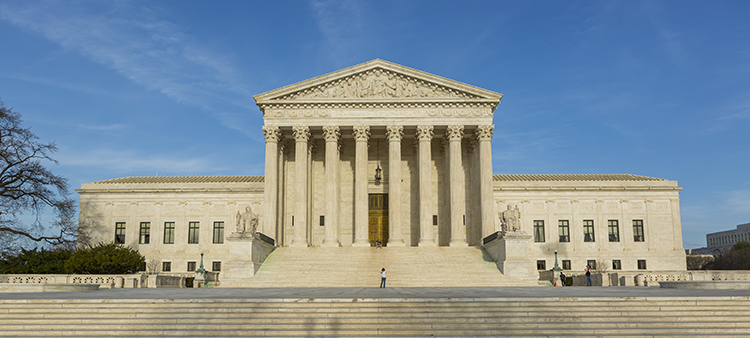U.S. Supreme Court
‘Radical agreement’ could lead to Supreme Court victory for reverse-discrimination plaintiff

The U.S. Supreme Court appeared ready to rule Wednesday that reverse-discrimination plaintiffs do not have to make a greater showing than minorities when suing for job bias. (Photo by Rob Crandall/Shutterstock)
The U.S. Supreme Court appeared ready to rule Wednesday that reverse-discrimination plaintiffs do not have to make a greater showing than minorities when suing for job bias.
The high court appeared to side with plaintiff Marlean Ames, who alleges that two less-qualified gay workers were chosen over her to fill positions with the Ohio Department of Youth Services, report SCOTUSblog, Reuters, Bloomberg Law, Law.com, the New York Times, NBC News and the Washington Post.
Ames is a straight white woman who lost out on a promotion to a gay woman and then was demoted from her current position, which was filled by a gay man.
At issue is whether members of majority groups suing for discrimination under Title VII of the Civil Rights Act must present special evidence of “background circumstances” to support their claims.
The 6th U.S. Circuit Court of Appeals at Cincinnati tossed Ames’ bias claim in December 2023 because she had not shown “background circumstances.” Such a showing is usually made if the person making the alleged discriminatory decision is a member of the minority group at issue or if there is statistical evidence showing a pattern of discrimination against the majority group, the 6th Circuit said. Ames did not supply that evidence.
The 6th Circuit is one of five federal appeals courts that have adopted the “background circumstances” rule, according to the cert petition. Two others have explicitly rejected it, and five others do not apply it.
During oral arguments Wednesday, Justice Neil Gorsuch observed “radical agreement” that the same test applies to all plaintiffs under Title VII. The plaintiff and her employer were in agreement, as were most, if not all, of the justices, according to SCOTUSblog.
The New York Times reported that the Supreme Court “seemed likely to issue a brief and perhaps unanimous decision” in favor of Ames.
Justice Brett Kavanaugh suggested brevity when he asked Ames’ lawyer if all he wants is “a really short opinion that says discrimination on the basis of sexual orientation, whether it’s because you’re gay or because you’re straight, is prohibited, and the rules are the same.”
Write a letter to the editor, share a story tip or update, or report an error.

